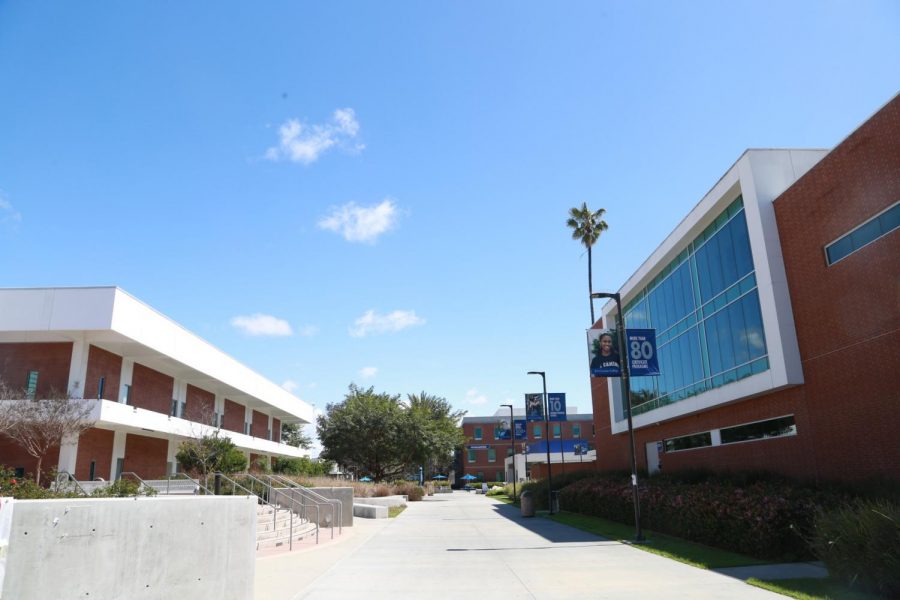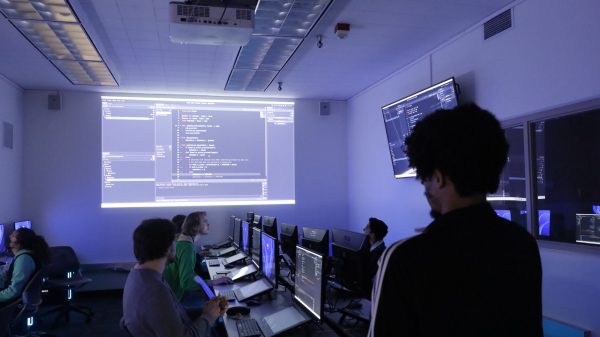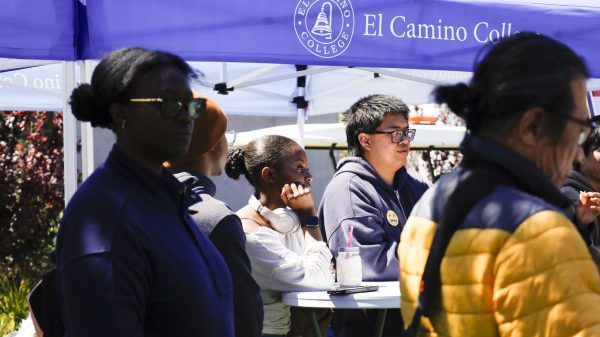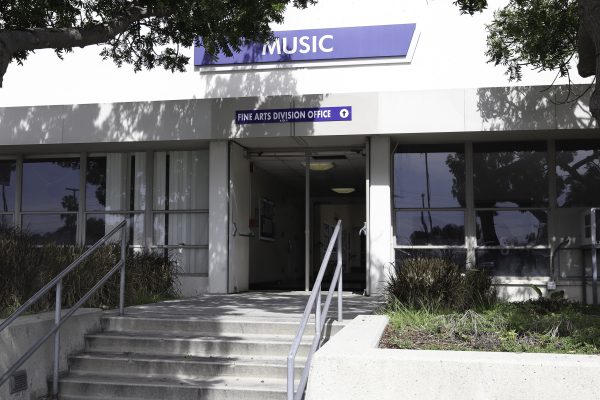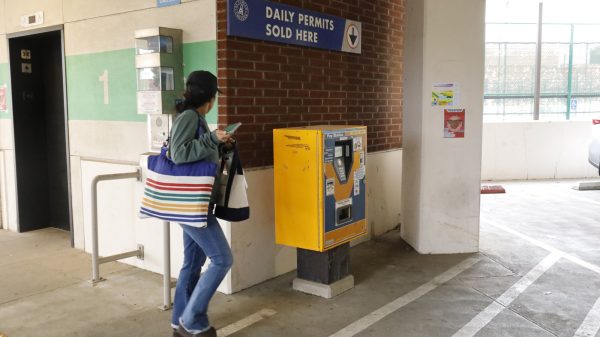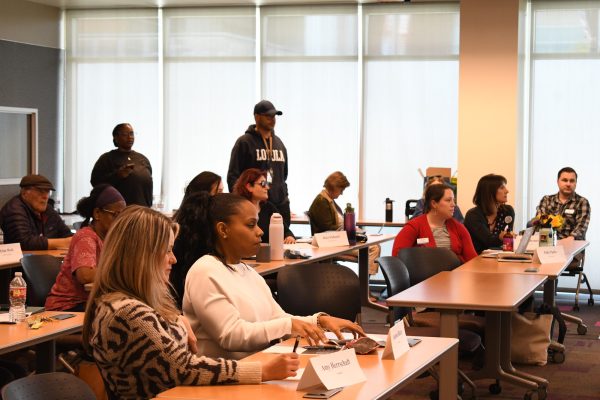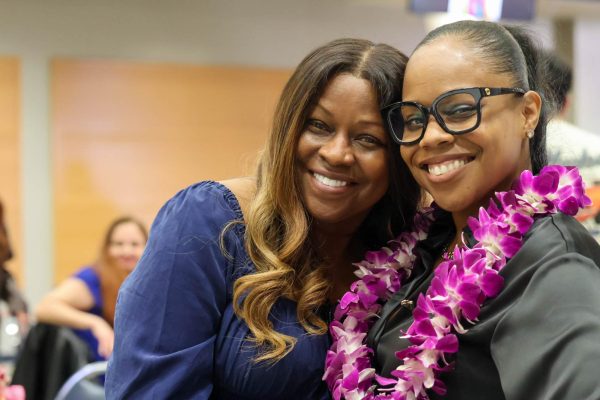Funds ‘don’t even begin to deal with all the need’: Chancellor leads lawsuit against U.S. Department of Education
El Camino College will remain closed to the public for the rest of the spring semester and summer sessions. More than 100 of its fellow community college campuses have received guidance from the State Chancellor Eloy Ortiz Oakley’s office, instructing campuses to keep classes online. Mari Inagaki/The Union
California Community Colleges Chancellor Eloy Ortiz Oakley made updates about leading a CARES Act lawsuit against the U.S. Department of Education, financial aid, immigration and mental health services during a student media press conference Tuesday May, 12.
Echoing guidance he has offered in the past, Oakley said students and faculty should be prepared to continue remote instruction going into the fall semester and the foreseeable future
“I think the one thing that we want people to know and we’d want students to know is that no one knows where this pandemic is going,” Oakley said. “No one knows the full impact of what’s going to happen to our communities to our society going forward.”
As more cities slowly reopen their economies, students and faculty will hear about the reopening of their colleges from the district office, boards of trustees and the colleges themselves, Oakley said.
Chancellor leads lawsuit against the U.S. Department of Education
The California Community Colleges has filed a lawsuit against the U.S. Department of Education for restricting as many as 800,000 students from receiving federal emergency student assistance, Oakley said in a press release.
“A great amount of the need is with our most vulnerable student populations,” Oakley said during the press conference. “We appreciate the funds that have come down from the federal government [but they] certainly don’t even begin to deal with all the need that’s out there.”
The lapse in students receiving aid includes veterans, citizens who have not completed a federal financial aid application and non-citizens, including those with DACA status, Oakley added.
The CARES Act, a recently passed $ 2 trillion legislation, allocated funding of almost $14 billion to colleges and universities, with El Camino College receiving about $11.7 million, in an effort to provide direct aid to students and institutions.
Initially, U.S. Secretary of Education Betsy DeVos indicated that colleges would be allowed to distribute funds at their discretion, meaning each institution may develop its own system and process for determining how to allocate these funds. Colleges and universities could choose between distributing the funds to all students or only to students who demonstrate significant need.
However, DeVos passed new guidelines on Thursday, April 21, that would prevent veterans, citizens who have not completed a federal financial aid application and non-citizens, including DACA recipients from receiving emergency aid.
Spokeswoman for the U.S. Department of Education Angela Morabito told reporters that Congress had no intention for the CARES Act to create an entitlement towards DACA recipients and others who are otherwise ineligible for federal public benefits. If Congress wanted to include DACA students and other foreign nationals in the new emergency bill, then they would have, she said.
Morabito told reporters that it is absurd that institutions want the department to fabricate a basis to send U.S. taxpayer money to non-citizens, given how many American students are in need of this emergency relief.
While states, colleges and universities have every right to help their DACA students financially, they cannot use U.S. federal taxpayer dollars in order to do so, Morabito added.
Joining the lawsuit against DeVos are the following community colleges: Los Angeles Community College District, the Los Rios Community College District, which serves the greater Sacramento area, the State Center Community College District, which serves the greater Fresno area, the Foothill-De Anza Community College District, which serves the South Bay area, and the San Diego Community College District.
DACA
As the CCCCO anticipates the Supreme Court’s decision over the Deferred Action for Childhood Arrivals (DACA) sometime in the next couple of months, its offices are working to ensure that resources are still available for students and faculty impacted by the decision, Oakley said.
DACA recipients are one of the groups currently restricted by the U.S. Department of Education’s guidelines on emergency student aid.
“We will continue to stand firm behind our students, particularly our undocumented students and advocate for them to receive the support that they deserve to be successful in our camp,” Oakley said. “Our campuses will continue to be a place of safety and stability for them.”
New financial aid components taken into consideration
The CCCCO is not anticipating substantial impacts to financial aid due to the shift to online classes, Executive Vice Chancellor for Educational Services Marty Alvarado said.
“I think the piece that we’re really focused on as well goes beyond the conversion to online and much more about, should the pandemic continue as its anticipated, the potential impact for students who may have to be home homeschooling children or taking care of family,” Alvarado said.
Alvarado added that they are looking into the financial aid components so that students packages are not negatively impacted due to changing circumstances.
Health services seek new ways to help students
The CCCCO is working on providing colleges with cost effective and accessible mental health services.
“I would imagine that our health centers are having this conversation now about deploying some sort of Telehealth for the fall because that’s where we’re going to need to be,” Oakley said. “We will continue to support our colleges, but each district is sort of looking at this within the context of their community.”
ECC’s Health Center continues to offer services where students can call 310-660-3643 to speak with a nurse practitioner on the Nurse Advice Line.
Student Health Services has also started a trial run for drop-in mental health check-ins via phone every Tuesday and Wednesday.
Article updated Wednesday, May 13, at 10:46 p.m. to include additional information.


